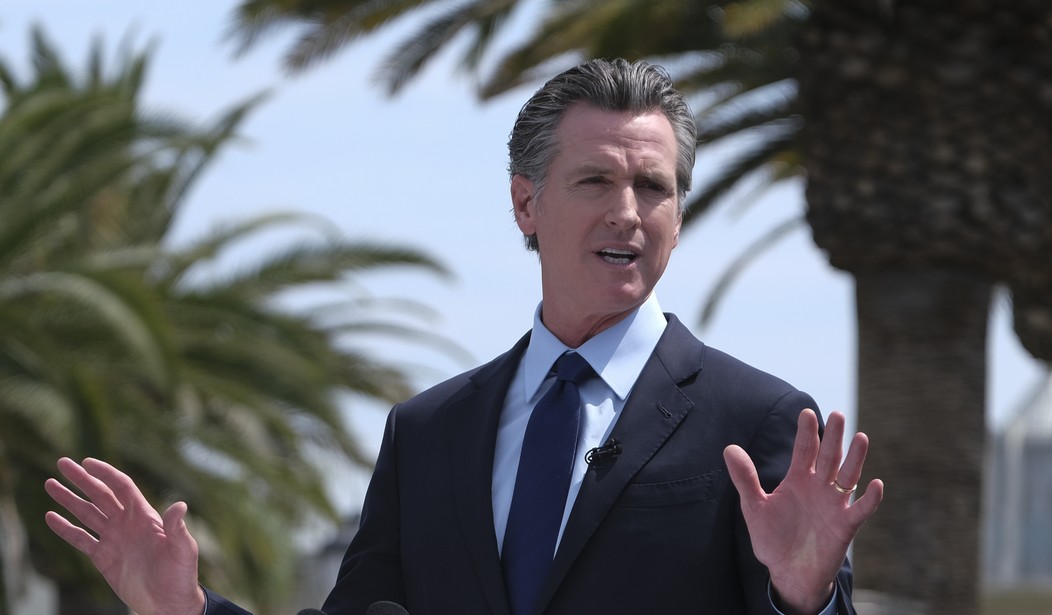On Friday, Gov. Gavin Newsom (D-CA) was handed another loss to do with his overly stringent lockdown orders due to the Wuhan coronavirus. In Brach v. Newsom, the 9th Circuit Court of Appeals in part reversed and remanded a decision from a district court. This recent ruling found that the plaintiffs--which included the parents of five children--were denied of a meaningful education and that their 14h Amendment rights were violated when California ordered private schools closed due to the virus.
2/ First pages of opinion: pic.twitter.com/Qm4tlNu82I
— Harmeet K. Dhillon (@pnjaban) July 23, 2021
4/ If you care about the rights of parents to control their children’s education, and want to help us continue this epic fight for their future in the trial court, please take a moment and support us here — https://t.co/YotLOEcOsr
— Harmeet K. Dhillon (@pnjaban) July 23, 2021
Harmeet K. Dhillon, the CEO of the Center for American Liberty, shared the news over Twitter on Friday. Her group, as well as counsel from Eimer Stahl LLP and the Dhillon Law Group appealed the district court's decision.
"Today’s opinion from the Ninth Circuit is a huge victory for parents’ rights,” Dhillon said in a statement. "The Ninth Circuit rightly ruled in parents’ favor, affirming that they – and not Gavin Newsom or faceless bureaucrats — have the right to decide how best to education their children."
When it comes to the plaintiffs' 14th Amendment rights, the court found that:
…the Supreme Court has long held that ‘the right of parents to make decisions concerning the care, custody, and control of their children is a fundamental liberty interested protected by the Due Process Clause,’ and that right includes ‘the right of parents to be free from state interference with their choice of the educational forum itself.’
...
Because California’s ban on in-person schooling abridges a fundamental liberty of these five Plaintiffs that is protected by the Due Process Clause that prohibition can be upheld only if it withstands strict scrutiny. Given the state closure order’s lack of narrow tailoring, we cannot say that, as a matter of law, it survives such scrutiny.
Recommended
While the court ruled in favor of private school students and their families, it did not when it comes to public school closures.
The court's opinion took issue with how the case before them was not a class action one, and also noted that the "public-school Plaintiffs have... failed to show that they have been deprived of a fundamental right that is recognized under the Supreme Court’s or this court’s caselaw."
Additionally, the opinion read:
The public-school Plaintiffs contend that one of the substantive protections conferred by the Due Process Clause is an “affirmative right to public-school education” that meets a “basic minimum” level of instruction. This contention fails, because the Supreme Court has repeatedly declined to “accept[] the proposition that education is a ‘fundamental right...’” and we have likewise stated that there is “no enforceable federal constitutional right to a public education...”
"While we are thrilled for our clients whose rights are vindicated by today’s decision, we are disappointed the Ninth Circuit did not rule that all students, including those in public school, have a basic right to an education. We will continue to advocate for the educational rights of all students," Dhillon also said, with original emphasis.
The opinion, with original emphasis, laid out the distinction as follows:
...Plaintiffs’ claims must be understood against the backdrop of the relevant caselaw, which... draws a sharp distinction between the alleged fundamental right to the provision of a basic minimum public education and the Meyer-Pierce right to be free of government interference in the choice of a private educational forum... Thus, as applied to the private-school Plaintiffs, the complaint’s substantive due process claim cannot reasonably be understood as alleging that the State had failed in its obligation to provide “a basic minimum education,” because those Plaintiffs were not asking the State to provide one. Rather, as to these Plaintiffs, this claim can only be understood as asserting that the State was unconstitutionally interfering with these Plaintiffs’ effort to choose the forum that they believed would provide their children with an adequate education...
...Of course, the private-school Plaintiffs were not asserting that their children were being deprived of a “state-provided education,” but only that the State was interfering with these Plaintiffs’ right to control the education of their children at the private forum of their choice...
Gov. Newsom has already lost numerous other cases, including at the U.S. Supreme Court, when it comes to those affecting his overly stringent lockdown orders using the pandemic as justification.
A recall election against Newsom will take place on September 14. A recent VIP article of mine addressed how Newsom's recall chances may be affected by mask mandates for children in schools and over how California saw some of the longest school closures in the country.
























Join the conversation as a VIP Member